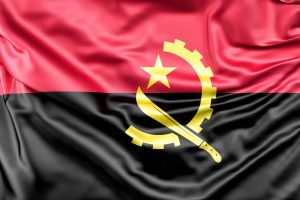Force majeure in Angola: how cab drivers' strike affects companies and contractual obligations
The recent cab drivers' strike in Angola has caused urban chaos, strikes, looting and significant losses for various sectors of the economy.
With urban mobility practically paralyzed and episodes of violence reported in several provinces, many businesses face total or partial interruptions of their operations.
Against this backdrop, questions arise: can this event be considered force majeure in Angola, and how can companies protect themselves legally and operationally?

What is force majeure in Angola?
In Angolan civil law, force majeure is defined as an unforeseeable and unavoidable event, beyond the control of the parties, which makes the performance of contractual obligations impossible.
To be legally recognized, the company concerned must demonstrate:
- The unpredictability and inevitability of the event.
- A direct causal relationship between the event and the impossibility of fulfilling the obligation.
- The absence of fault or negligence that aggravated the situation.
Cab drivers strike: a real case of force majeure
Although strikes may be considered an abstract possibility, the magnitude and severity of this closure outweigh the usual business risks.
The current situation involves:
- Massive blockages and interruption of urban and interurban mobility.
- Acts of looting and vandalism that threaten the safety of employees and property.
- Lack of transportation that prevents workers from reaching their jobs.
These factors make it plausible for directly affected companies to invoke force majeure in Angola.
Impact of the strike on companies
The closure of informal transportation, the main means of transportation for thousands of workers, has immediate consequences:
- Supply chain disruption and logistical delays.
- Suspension of production and commercial activities.
- Increased costs for alternative transportation and increased security.
- Financial losses and breach of contract.
How companies can invoke force majeure
To use force majeure as a legal argument, it is recommended:
- Analyze contracts and specific clauses on major force.
- Formally notify partners and customers about the situation.
- Collect evidence of impact: absence records, photos, reports, internal communications.
- Apply alternative measures, such as private transportation, teleworking or reorganization of shifts.
- Reinforce security in facilities and merchandise.
Risk Management and Prevention
The episode reinforces the importance of Angolan companies:
- Incorporate contingency plans for extreme events.
- Define clearer contractual clauses regarding strikes, demonstrations and mobility crises.
- Invest in integrated risk management and operational resilience.
Conclusion
The cab drivers' strike in Angola is more than a labor protest: it is a force majeure event with a significant impact on the economy and the operational stability of companies.
An adequate legal framework, combined with risk mitigation strategies, is essential to minimize losses and protect business continuity.
BLOG: practical articles for responsible leaders

AML/CTF implementation in Angola: Law 11/24 and the real operational challenge
Law 11/24 strengthens Angola's legal framework against money laundering and terrorist financing, but the real challenge is operational.
The critical point is transforming AML/CTF obligations into effective controls, organized evidence, and integration into daily risk management.

Compliance and transparency in Angola: challenges that require more than just rules
Angola is making progress in terms of transparency and governance, but the actual implementation of compliance remains a challenge. Learn about the key factors for making it effective.

What the January 2026 railway incidents reveal about passenger safety
The railway incidents of January 2026 show that passenger safety is a complex socio-technical system. Infrastructure, software, weather, and regulations must be managed in an integrated manner.

ISO management systems in Angolan mining: interview with Dr. Irene Barata, Managing Director of PetroShore Compliance
Dr. Irene Barata, CEO of PetroShore Compliance, discusses the strategic value of ISO systems in Angola's mining industry. The interview covers operational maturity, sustainability, investor relations, and future trends.

